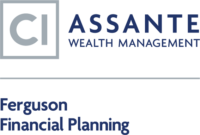Financial Planning: In your 50s

50 is an exciting milestone. By now, your hard work and dedication have likely resulted in a successful career and financial stability. As you enter this stage, it’s crucial to shift your focus towards securing your future and ensuring a comfortable retirement.
We will guide you through essential financial considerations to help you make informed decisions and take meaningful action.
Assessing Retirement Readiness
Are you ready to retire?
This is the question that often lingers in the minds of individuals approaching their golden years. Assessing your retirement readiness is the first step towards securing your future. Evaluate the following key factors:
- Savings and Investments: Determine the total value of your savings and investments, including retirement accounts, brokerage accounts, and other assets. Calculate whether your current savings will sustain your desired lifestyle throughout retirement.
- Debt and Expenses: Evaluate your outstanding debt, such as mortgages, loans, and credit cards. Develop a plan to reduce or eliminate debt to achieve financial freedom in retirement. Review your current expenses and anticipate changes post-retirement.
- Projected Income: Assess your expected income sources during retirement, including personal pension plans, government pension plans like OAS and CPP, and investment income. Ensure your projected income aligns with your desired lifestyle.
- Determine what you are retiring to: Thinking about what you want to do after retirement from your full time job will help you to answer the questions above.
To ensure a smooth transition into retirement, consult with us. We can help you to figure out how much you need to save for retirement, create a retirement budget, and develop a personalized strategy that addresses any gaps in your retirement plan, including where to draw assets from first in retirement.
Catching Up on Retirement Savings
If you feel that you haven’t saved enough for retirement, don’t panic! Many individuals find themselves in this situation and successfully catch up on their savings. Here’s how you can boost your retirement savings in your 50s:
- Maximize Contributions: Take full advantage of retirement savings vehicles like Registered Retirement Savings Plans (RRSPs) and Tax-Free Savings Accounts (TFSAs). Contribute the maximum allowable amount each year to accelerate your savings.
- Take Advantage of Catch-Up Provisions: If you have unused RRSP contribution room from previous years, consider utilizing the RRSP catch-up provision to contribute more than the annual limit. This can significantly boost your retirement savings.
- Consider Downsizing: Assess your housing needs and explore the possibility of downsizing. Selling your larger home and moving to a smaller, more affordable property can free up substantial funds for retirement.
By implementing these strategies, you can make meaningful progress towards catching up on your retirement savings and ensure a more comfortable financial future.
Transitioning Investment Strategies
It’s crucial to reassess your investment strategies to align them with your changing financial goals and risk tolerance. Consider the following factors when transitioning your investment portfolio:
- Risk Management: As retirement approaches, it’s important to strike a balance between growth and preservation of capital. Review your portfolio’s risk exposure and consider gradually shifting towards more conservative investments to preserve your savings.
- Diversification: Evaluate the diversification of your investment portfolio to reduce risk and capture potential returns. Spread your investments across various asset classes, sectors, and geographies to minimize vulnerability to market volatility.
- Tax-Efficiency: Explore tax-efficient investment strategies, such as maximizing contributions to registered accounts and utilizing tax-efficient investment vehicles like index funds and ETFs. Consult with a financial advisor to optimize your investment approach for tax minimization.
- Regular Portfolio Reviews: Schedule regular portfolio reviews with your financial advisor to ensure your investment strategy remains aligned with your goals. Periodic adjustments and rebalancing can help you stay on track and make informed investment decisions.
Remember, transitioning investment strategies requires careful consideration and expert guidance. A financial advisor can help you navigate this process, ensuring your investments are tailored to your specific needs and goals.
Evaluating Insurance and Healthcare Needs
As you enter your 50s, it becomes increasingly important to evaluate your insurance and healthcare needs to preserve your financial well-being. Consider the following aspects:
- Life Insurance: Assess whether your current life insurance coverage is adequate to meet your family’s financial needs in the event of your passing. If necessary, consider increasing your coverage or exploring additional policies.
- Disability Insurance: Review your disability insurance coverage to preserve against the risk of being unable to work due to injury or illness. Ensure that your coverage aligns with your income and financial obligations.
- Health Insurance: Evaluate your health insurance coverage, including employer-sponsored plans and government-provided benefits. Understand the coverage limitations and consider supplementing with private health insurance to bridge potential gaps.
- Long-Term Care Insurance: Long-term care expenses can significantly impact your retirement savings. Assess whether long-term care insurance is appropriate for your situation and explore the options available to preserve yourself from potential high healthcare costs.
Long-Term Care Planning
Long-term care planning is an often overlooked aspect of financial planning in your 50s. By addressing this matter proactively, you can preserve your assets and alleviate potential burdens on your loved ones. Consider the following steps:
- Educate Yourself: Understand the costs and types of long-term care, including assisted living facilities, nursing homes, and home healthcare services. Research the available government programs and benefits.
- Financial Preparedness: Assess your financial resources and determine how you would fund long-term care expenses. Consider setting aside dedicated savings or explore long-term care insurance options to provide a safety net.
- Estate Planning: Incorporate long-term care planning into your overall estate plan. Designate a trusted individual to make healthcare and financial decisions on your behalf through a power of attorney or representation agreement.
- Family Discussions: Engage in open conversations with your loved ones about your long-term care wishes. Ensure they understand your preferences and are prepared to support you when needed.
By proactively addressing long-term care planning, you can alleviate stress and ensure your future needs are met without depleting your retirement savings.
Estate Planning and Legacy Goals
Estate planning is a critical component of financial planning in your 50s. It allows you to preserve your assets, minimize tax implications, and ensure your legacy goals are met. Consider the following steps:
- Create or Update Your Will: Ensure you have a legally binding will that reflects your current wishes. Review and update beneficiaries, guardianship provisions for minor children, and distribution of assets.
- Establish Powers of Attorney: Designate powers of attorney for both healthcare and financial matters. Choose individuals you trust to make decisions on your behalf in case of incapacity.
- Consider Trusts: Explore the benefits of establishing trusts to preserve your assets and provide for specific beneficiaries. Trusts can help minimize estate taxes, preserve assets from creditors, and control the distribution of wealth.
- Charitable Giving: If supporting charitable causes aligns with your values, consider incorporating philanthropic goals into your estate plan. Explore options such as establishing a charitable foundation or making charitable bequests.
Estate planning is complex, and the assistance of an experienced estate planning attorney or financial advisor is invaluable. They can help you navigate legal requirements and develop a comprehensive plan that aligns with your specific goals.
Financial planning is an ongoing process, so don’t stress!
Taking Action
Armed with valuable insights and actionable advice, it’s time to take control of your financial future. To get started you want to evaluate your current financial position, retirement readiness, and investment strategies. Identify areas that require attention or improvement.
For the next steps, we can help.
We can help
We work with business professionals, executives, and families to grow and protect their wealth using our Wealth Plan formula. To discuss our approach and if it is the right fit for you, we invite you to schedule a no-obligation discovery consultation.

